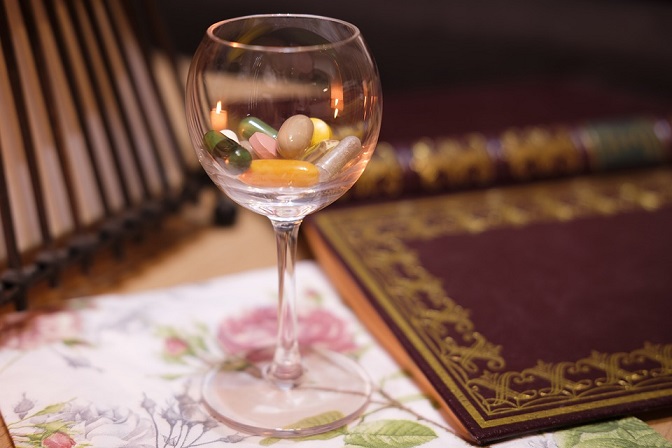How to Improve Your Sleep by Eating Greener
How was your sleep last night? If your answer is anything less than “great,” you are not alone. Approximately 50 to 70 million US adults have a sleep disorder, according to the American Sleep Association.
If you regularly wake up in the morning feeling like you had yet another poor night of sleep, your diet could be to blame. The good news is that you can do something about this problem. Small changes to your diet, including eating greener can improve your sleep.
Have you ever gone to bed hungry? It was probably difficult to fall asleep over the feeling of your growling stomach or your mind daydreaming about food. But if you eat a full meal, you may feel sleepy afterward. There is evidence that stomach distention makes you feel tired after a meal, according to sleep expert Dr. Lawrence Epstein, an instructor at Harvard Medical School. But there is more to a quality night of rest than whether you go to bed hungry or full. It is also about what food you eat – or shouldn’t eat – during the day.

Foods to Avoid
Numerous foods can keep you from falling asleep. For example, foods that are spicy can cause heartburn and may even stimulate gastroesophageal reflux disease (GERD) in some individuals. Individuals who struggle with GERD are more likely to have sleep problems, such as restless legs syndrome, insomnia, sleep apnea or daytime sleepiness.
Some people, who are sensitive to lactose, may experience abdominal pain or cramping, bloating and/or diarrhea. Food and drink containing lots of caffeine can also make it difficult to fall or stay asleep.
Alcohol also has a negative impact on a good night of R&R. Alcohol may make you fall asleep faster but it can lead to lots of night waking as it wears off, leading to less restful stages of sleep. This can leave you to wake up feeling less refreshed. What is worse is that excessive alcohol consumption can lead you to develop permanent problems falling asleep, according to Dr. Epstein.
So, it would make sense to avoid foods that cause triggers for you. If you battle GERD, then you should steer clear of high-fat foods, alcohol, spicy foods and soda. If lactose causes trouble for you, avoid eating anything containing lactose. It is also wise to avoid caffeine late in the day. The National Sleep Foundation found that the effects of caffeine can cause people to experience difficulty falling asleep as many as 10 to 12 hours after having a caffeinated beverage in some individuals. It also stands to reason that alcohol should be avoided as it is a proven sleep disruptor.

One 2016 study showed that a diet low in fiber and high in saturated fat and sugar is not good for your sleep either. Researchers at the Institute of Human Nutrition and Columbia University Medical Center examined how our dietary patterns impact our rest. The team of researchers brought on 26 adults of normal weight between the ages of 30 and 45 who had no sleep issues.
The participants were watched for 5 nights in a sleep lab so their brain waves could be recorded to determine how food impacted their sleep. For the first four days, participants ate a controlled diet but on day 5, they were allowed to choose whatever they wanted to eat. The results showed that the quality of sleep was lessened after the day of free eating and the participants also took longer to fall asleep.
So, we see that poor food choices can adversely impact our sleep. What are some good choices?
Foods to Eat for a Better Night of Sleep
Eat a balanced diet that includes plenty of fiber from fresh fruits and vegetables to get started on the right path to better sleep. Whole grains and low-fat proteins that are rich in B vitamins can also play a positive role in improving your sleep quality as they may be able to help regulate melatonin, which is a hormone that helps to regulate the body’s sleep cycles.
The following foods can be added to your diet if you want to get better sleep at night:
- Dark leafy greens, such as Swiss chard, spinach, turnip greens, collard greens and kale are full of minerals that play a big role in helping you get a solid night of sleep, such as magnesium, potassium and calcium. Calcium helps your body generate melatonin while potassium and magnesium help to relax overstressed muscles.

- Bananas are also rich in potassium and magnesium. The magnesium in bananas can help with restless leg syndrome symptoms, which has the ability to get in the way of a person’s sleep. Bananas also have tryptophan, which is an amino acid known to improve sleep quality by raising melatonin levels.

- Fish is another food high in tryptophan, which helps to control your sleep-wake cycles. Fish is also high in vitamin B6, which helps your body to make melatonin. Foods high in tryptophan have been proven to reduce sleepiness while sustaining alertness early in the morning, likely due to a greater quality of sleep overnight.

Risks of a Poor Sleep Cycle
Lack of sleep can cause you to be more than just groggy and grumpy.
There are other risks associated with poor sleep, including:
- Heightened risk of accidents
- Increased risk for serious health problems, such as heart failure, heart attack, irregular heartbeat, high blood pressure,
- diabetes and stroke
- Low sex drive
- Higher risk of depression
- Rapidly aging skin
- Forgetfulness, impaired judgement and mental dullness
- Weight gain
- Increased risk for addiction and dependence to sleeping pills
A Note about Sleeping Pills

Sleeping pills have become popular over the last several decades, helping many people to get a little more sleep with a seemingly quick fix. Most sleeping pills are prescribed as a short-term solution. The difficulty is there are risks associated with these medicines. Insomnia medications carry a risk of serious physical dependency. Research has suggested that these medications are ineffective at resolving the underlying causes of insomnia in patients, simply putting a Band-Aid on the problem.
Many people underestimate the powerful grip that sleeping medications can hold over sufferers of poor sleep. The dangerous effects of sleeping pills can range from depressed breathing to seizures as well as allergic reactions.
If you or someone you know is suffering from sleeping pill overuse, treatment should be sought. There is also a chance that he is battling a co-occurring disorder, such as that of depression combined with a sleeping pill addiction, which requires a special type of drug addiction treatment.
Overall, one of the most natural and safest ways to get better sleep is to make mindful food choices. By improving your diet and eating greener foods, you not only can experience better sleep at night but your overall health will also benefit.
